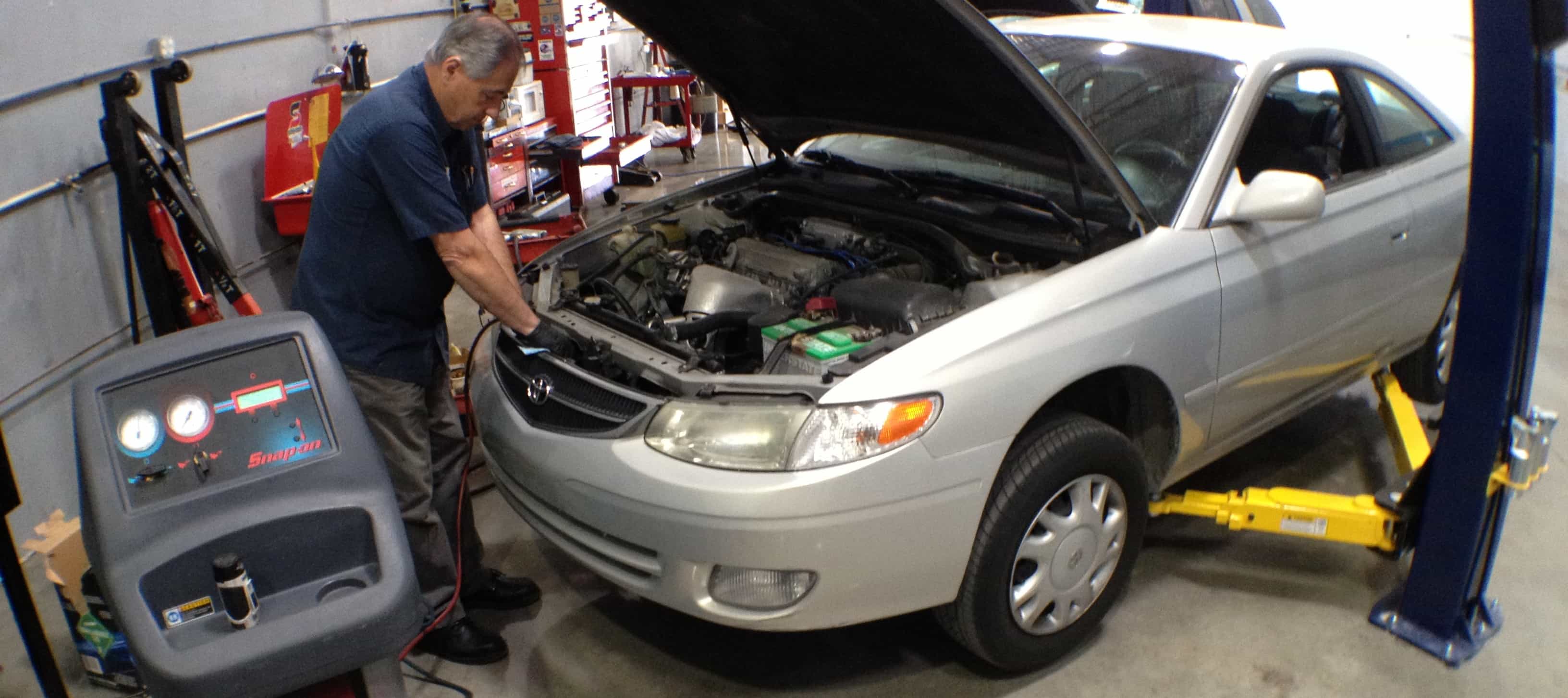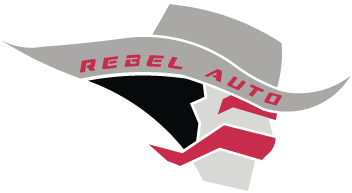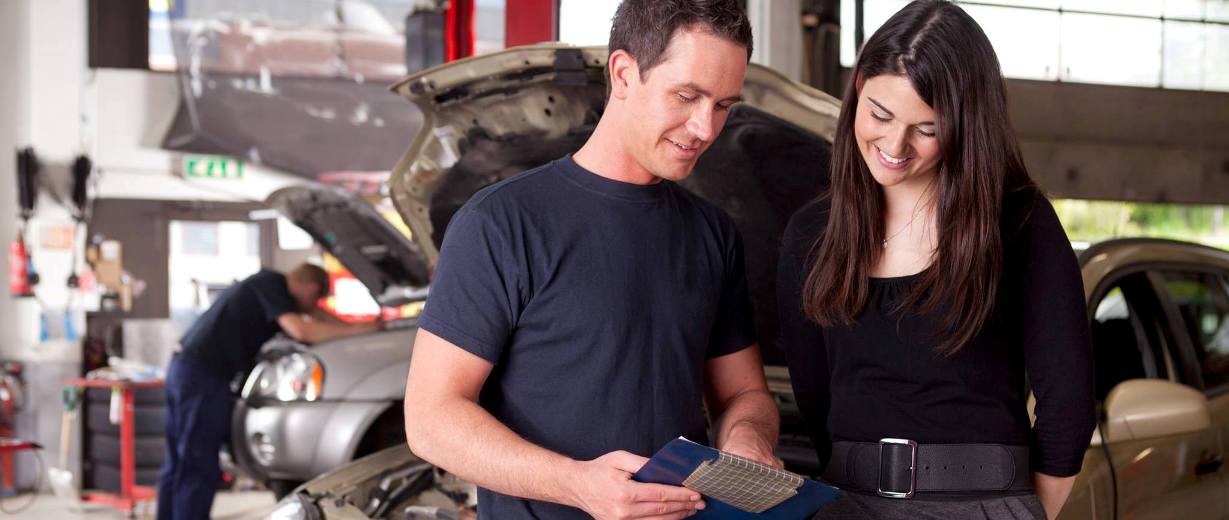Certified Car Tune Up Service | Henderson, NV
When Is It Time For a Car Tune Up Service For Your Vehicle?
As you have probably already experienced, your vehicle needs regular attention to keep it running strong. To help keep your vehicle performing well and dependable for drivers and passengers alike, we recommend periodic tune ups and preventative vehicle maintenance. A regular car tune up can also isolate potential signs or even diagnose a specific performance problem.
It’s Time For a Tune Up Car Service If You Notice…
- a decrease in gas mileage
- a noticeable loss of power
- Your engine is running “rough” or stalling when at a stop
- engine “knocking” when accelerating or running after the ignition is turned off
- Your “Check Engine” or “Service Engine” light remains on after initial start
You May Wonder "What Does Car Tune Up Service Mean?
The nature of an engine tune up car service has changed considerably over the years, but the basics of how a gasoline engine works have not. Clean gas and air need to be driven to the vehicle’s cylinders, where combustion is initiated by a spark plug and creates the power necessary to move a heavy vehicle. Clogged fuel injectors, dirty air, and fuel filters, and corroded spark plugs can all decrease engine performance and contribute to decreased gas mileage and performance.
On your next Car Tune Up we will…
- Examine your vehicle’s air filter
- Follow manufacturers’ recommendations
- Replace key components (fuel filters, PCV (Positive Crankcase Ventilation) valves, and spark plugs) when they no longer work at maximum efficiency
Get the most out of your car. Call Rebel Automotive today and schedule an Appointment with our Certified Auto Technicians.
Our Professional Car Shop is Proudly Serving Quality Tune up Service to all the Vehicle Owners in Henderson, NV | Las Vegas, NV | North Las Vegas, NV, & Other Surrounding Areas.
Frequently Asked Questions
How can you tell if your car needs a tune up?
Your car may need a tune-up if you notice rough idling, reduced fuel efficiency, difficulty starting, or sluggish acceleration. Regular tune-ups help keep your engine running smoothly. Read More
How do you know when you need a tune up?
You may need a tune-up if your car shows reduced fuel efficiency, engine misfires, stalling, or slow starts. These signs indicate it’s time for maintenance to restore performance. Read More
What happens when your car needs a tune up?
When your car needs a tune-up, you might notice reduced fuel efficiency, rough idling, unusual noises, difficulty starting, or reduced engine power. A tune-up restores smooth performance and prevents costly repairs. Read More
What does a car tune up consist of?
A car tune-up typically includes inspecting and replacing spark plugs, filters, and fluids, along with checking the ignition, belts, hoses, and overall engine performance to keep your vehicle running smoothly. Read More
How often should you get a car tune up?
Most cars need a tune-up every 30,000 to 100,000 miles, depending on the make, model, and driving conditions. Always follow your manufacturer’s maintenance schedule for the best results. Read More
Schedule Your Car Tune-Up in Henderson, NV
Want smoother performance and improved fuel efficiency? Let our ASE certified technicians give your car a full tune-up for reliable, long-lasting engine health.
Expert tune-ups, quality parts, and prompt service — keep your vehicle running smoothly and efficiently on every drive.

When Is It Time For a Car Tune Up Service For Your Vehicle?
As you have probably already experienced, your vehicle needs regular attention to keep it running strong. To help keep your vehicle performing well and dependable for drivers and passengers alike, we recommend periodic tune ups and preventative vehicle maintenance. A regular car tune up can also isolate potential signs or even diagnose a specific performance problem.
It’s Time For a Tune Up Car Service If You Notice…
- a decrease in gas mileage
- a noticeable loss of power
- Your engine is running “rough” or stalling when at a stop
- engine “knocking” when accelerating or running after the ignition is turned off
- Your “Check Engine” or “Service Engine” light remains on after initial start
You May Wonder "What Does Car Tune Up Service Mean?
The nature of an engine tune up car service has changed considerably over the years, but the basics of how a gasoline engine works have not. Clean gas and air need to be driven to the vehicle’s cylinders, where combustion is initiated by a spark plug and creates the power necessary to move a heavy vehicle. Clogged fuel injectors, dirty air, and fuel filters, and corroded spark plugs can all decrease engine performance and contribute to decreased gas mileage and performance.
On your next Car Tune Up we will…
- Examine your vehicle’s air filter
- Follow manufacturers’ recommendations
- Replace key components (fuel filters, PCV (Positive Crankcase Ventilation) valves, and spark plugs) when they no longer work at maximum efficiency
Get the most out of your car. Call Rebel Automotive today and schedule an Appointment with our Certified Auto Technicians.
Our Professional Car Shop is Proudly Serving Quality Tune up Service to all the Vehicle Owners in Henderson, NV | Las Vegas, NV | North Las Vegas, NV, & Other Surrounding Areas.
Frequently Asked Questions
How can you tell if your car needs a tune up?
Your car may need a tune-up if you notice rough idling, reduced fuel efficiency, difficulty starting, or sluggish acceleration. Regular tune-ups help keep your engine running smoothly. Read More
How do you know when you need a tune up?
You may need a tune-up if your car shows reduced fuel efficiency, engine misfires, stalling, or slow starts. These signs indicate it’s time for maintenance to restore performance. Read More
What happens when your car needs a tune up?
When your car needs a tune-up, you might notice reduced fuel efficiency, rough idling, unusual noises, difficulty starting, or reduced engine power. A tune-up restores smooth performance and prevents costly repairs. Read More
What does a car tune up consist of?
A car tune-up typically includes inspecting and replacing spark plugs, filters, and fluids, along with checking the ignition, belts, hoses, and overall engine performance to keep your vehicle running smoothly. Read More
How often should you get a car tune up?
Most cars need a tune-up every 30,000 to 100,000 miles, depending on the make, model, and driving conditions. Always follow your manufacturer’s maintenance schedule for the best results. Read More
Schedule Your Car Tune-Up in Henderson, NV
Want smoother performance and improved fuel efficiency? Let our ASE certified technicians give your car a full tune-up for reliable, long-lasting engine health.
Expert tune-ups, quality parts, and prompt service — keep your vehicle running smoothly and efficiently on every drive.


